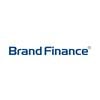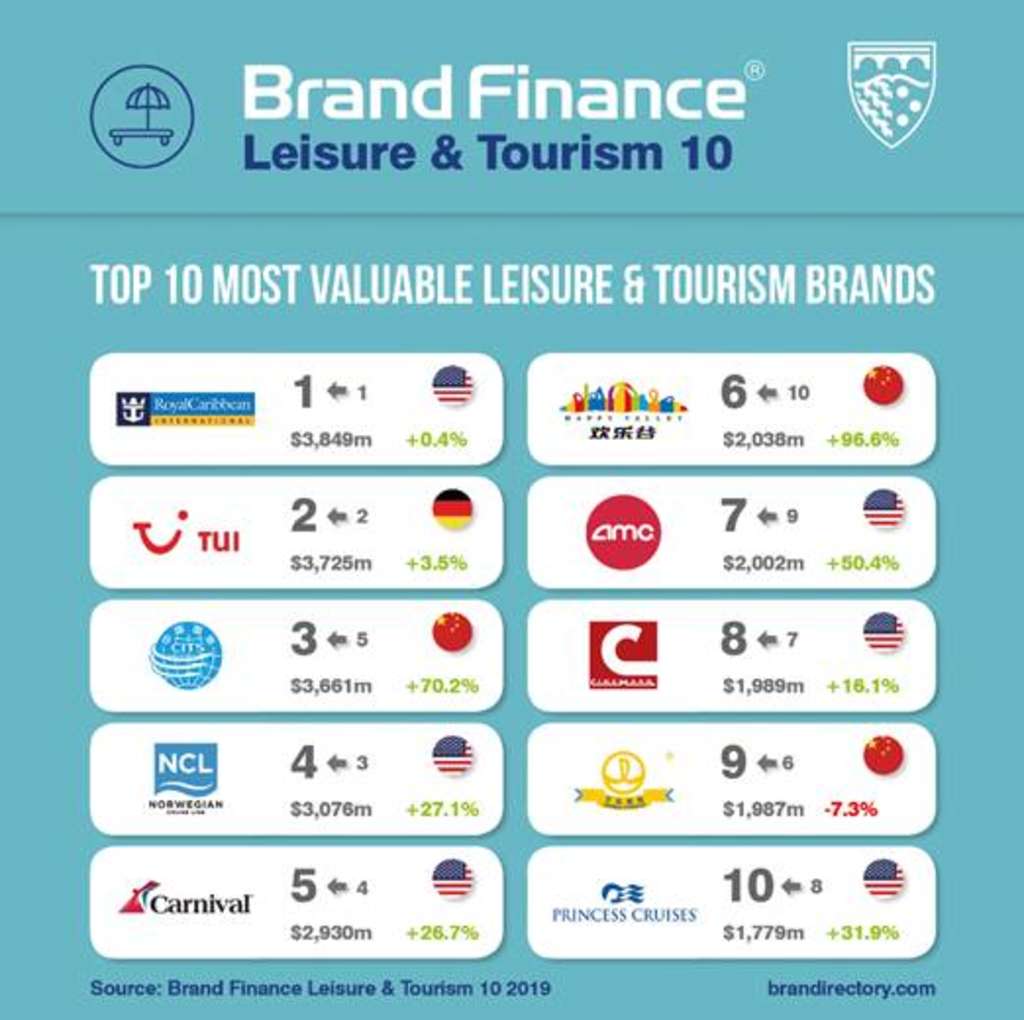Hilton’s Brand Portfolio Overtakes Marriott’s as World’s Most Valuable
- Hilton remains world's most valuable individual hotel brand with 17% growth
- Marriott's portfolio drops to second place as the value of its brands in the Brand Finance Hotels 50 ranking decreases by 30%, giving way to Hilton
- World's fastest-growing hotel brands come from Hilton's portfolio: Homewood Suites, Double Tree, and Hampton
- Mercure is world's strongest hotel brand, Shangri La and Holiday Inn close behind
Hilton has extended its lead as the world's most valuable hotel brand while the total value of its brand portfolio within the Brand Finance Hotels 50 ranking has overtaken Marriott's, according to the latest report by Brand Finance, the world's leading independent brand valuation consultancy. Hilton's brand value growth (up 17% to US$7.4 billion) was largely driven by strong revenue increase over the last year, cementing the brand's leadership position in the industry.
Meanwhile, Marriott suffered a reduction in brand value (down 8% to US$5.0 billion) and its brand strength dropped from AAA- to AA+. Marriott has faced several challenges in the North American market from hacking scandals to persistent problems with its loyalty schemes. At the same time, the combined value of Marriott's brands within the Brand Finance Hotels 50 ranking decreased by 30%, giving way to Hilton's brand portfolio to claim the title of the world's most valuable.
Savio D'Souza, Valuation Director at Brand Finance, commented:
"Hilton's strategic approach to brand growth has allowed it to extend its lead as the world's most valuable hotel brand. At the same time, endorsement from the flagship brand has rendered benefits across the portfolio as Homewood Suites, Double Tree, and Hampton have seen their brand values sore. In its centennial year, Hilton is well-positioned for another hundred years of success."
Hilton's brand portfolio overtakes Marriott's
The combined value of all Hilton brands which made this year's top 50 ranking amounts to US$14.7 billion - nearly US$2 billion more than Marriott's US$12.9 billion portfolio. Hilton Worldwide Holdings achieved overall brand value growth of 41%, a stark contrast with the Marriott International brand portfolio decreasing by 30%.
Hilton's brand value in the top 50 ranking is concentrated across six brands, up from five in 2018, all strongly leveraging the valuable Hilton brand name and each recording solid growth this year. Hilton has continually committed to its relentless expansion programme and with thousands of new rooms and hotels in the pipeline, the company shows no signs of slowing down in the coming year.
Marriott has not fared so well, with four of its brands dropping out of the Brand Finance Hotel 50 ranking this year. With one new entrant, Marriott now has twelve brands in the ranking, many of which have nevertheless decreased in value. Marriott's recent announcement of entering the home-rental market however, is a promising move to take back market share from Airbnband could contribute to an uplift in brand value in the coming year.
The Hilton and Marriott portfolios remain well ahead of third-ranked Wyndham, which also suffered a drop of 8% in brand value to US$7.3 billion.
Fastest-growing brands
The three hotel brands to grow the fastest in value this year all come from Hilton's portfolio, and each contributed to its overall growth. Their impressive performance was led by Homewood Suites (brand value up 99% to US$0.8 billion), followed closely by Double Tree (up 79% to US$2.1 billion) and Hampton (up 78% to US$3.2 billion). This growth allowed the latter two brands to reshape the ranking's top 10, with Double Tree jumping from 17th to 7th and Hampton rising from 10th to 5th place over the past year.
At the same time, the three fastest-falling brands this year (Westin - down 46%, Residence Inn - down 46%, and Sheraton - down 44%), and altogether 7 out of the bottom 10 worst-performing brands, are part of the Marriott portfolio, dragging its combined value down.
Mercure is world's strongest hotel brand
Aside from calculating overall brand value, Brand Finance also determines the relative strength of brands through a balanced scorecard of metrics evaluating marketing investment, stakeholder equity, and business performance. Alongside revenue forecasts, brand strength is a crucial driver of brand value.
According to these criteria and scoring high in Brand Finance market research, Mercure has claimed the title of the world's strongest hotel brand, significantly improving its Brand Strength Index (BSI) score from 75.7 to 86.2 out of 100 and recording a brand rating upgrade from AA+ to AAA. Mercure is also the most valuable brand in Accor's portfolio, with nearly 800 hotels. The brand has continued to make several acquisitions through its scheme of franchise growth.
TUI closes in on Royal Caribbean
Alongside analysing the world's biggest hotel brands, Brand Finance also ranks the top 10 most valuable brands in the wider leisure and tourism industry.
Royal Caribbean International has narrowly retained its position as the world's most valuable leisure and tourism brand, with its brand value remaining steady at US$3.8 billion. The brand reported strong financial results in 2018, and with demand high in the cruise industry, Royal Caribbean are on course for future growth.
Meanwhile, second-ranked TUI (brand value up 4% to US$3.7 billion) substantially closed the gap to the ranking's leader, only just falling short of overtaking Royal Caribbean.
Chinese brands surge
The fast-growing China International Travel (up 70% to US$3.7 billion) has come third this year, up from 5th in 2018. China International saw a significant increase in its valuation due to a surge in forecast revenue in coming years as the Chinese tourism market continues to develop with unprecedented speed and scale.
The fastest-growing brand in the ranking also comes from China. Happy Valley almost doubled its brand value in a single year (up 97% to US$2.0 billion).
Savio D'Souza, Valuation Director at Brand Finance, commented:
"Royal Caribbean International remains the world's most valuable leisure and tourism brand but is being challenged by broader economic changes. The significant growth achieved by Chinese travel brands is powered by the country's burgeoning middle class as it is increasingly able to travel internationally."
View the full Brand Finance Hotels 50 2019 report here
Note to Editors
Every year, leading valuation and strategy consultancy Brand Finance values the world's biggest brands. The 50 most valuable hotel brands and the 10 most valuable leisure & tourism brands are included in the Brand Finance Hotels 50 2019 and the Brand Finance Leisure & Tourism 10 2019 rankings.
The brand portfolio analysis is based on the Brand Finance Hotels 50 ranking and does not take into account less valuable brands which have not been included in the ranking.
Brand value is understood as the net economic benefit that a brand owner would achieve by licensing the brand in the open market. Brand Strength is the efficacy of a brand's performance on intangible measures relative to its competitors.
Additional insights, more information about the methodology, as well as definitions of key terms are available in the Brand Finance Hotels 50 2019 report.
Brand Finance helped craft the internationally recognised standard on Brand Valuation - ISO 10668, and the recently approved standard on Brand Evaluation - ISO 20671.
Brand Finance is a chartered accountancy firm regulated by ICAEW and also the first brand valuation consultancy to join the International Valuation Standards Council (IVSC).
Data compiled for the Brand Finance rankings and reports are provided for the benefit of the media and are not to be used for any commercial or technical purpose without written permission from Brand Finance.
Methodology
Definition of Brand
Brand Finance helped to craft the internationally recognised standard on Brand Valuation - ISO 10668. It defines a brand as a marketing-related intangible asset including, but not limited to, names, terms, signs, symbols, logos, and designs, intended to identify goods, services or entities, creating distinctive images and associations in the minds of stakeholders, thereby generating economic benefits.
Brand Strength
Brand Strength is the efficacy of a brand's performance on intangible measures, relative to its competitors. In order to determine the strength of a brand, we look at Marketing Investment, Stakeholder Equity, and the impact of those on Business Performance.
Each brand is assigned a Brand Strength Index (BSI) score out of 100, which feeds into the brand value calculation. Based on the score, each brand is assigned a corresponding rating up to AAA+ in a format similar to a credit rating.
Brand Valuation Approach
Brand Finance calculates the values of the brands in its league tables using the Royalty Relief approach - a brand valuation method compliant with the industry standards set in ISO 10668. It involves estimating the likely future revenues that are attributable to a brand by calculating a royalty rate that would be charged for its use, to arrive at a 'brand value' understood as a net economic benefit that a brand owner would achieve by licensing the brand in the open market.
The steps in this process are as follows:
- Calculate brand strength using a balanced scorecard of metrics assessing Marketing Investment, Stakeholder Equity and Business Performance. Brand strength is expressed as a Brand Strength Index (BSI) score on a scale of 0 to 100.
- Determine royalty range for each industry, reflecting the importance of brand to purchasing decisions. In luxury, the maximum percentage is high, in extractive industry, where goods are often commoditised, it is lower. This is done by reviewing comparable licensing agreements sourced from Brand Finance's extensive database.
- Calculate royalty rate. The BSI score is applied to the royalty range to arrive at a royalty rate. For example, if the royalty range in a sector is 0-5% and a brand has a BSI score of 80 out of 100, then an appropriate royalty rate for the use of this brand in the given sector will be 4%.
- Determine brand-specific revenues by estimating a proportion of parent company revenues attributable to a brand.
- Determine forecast revenues using a function of historic revenues, equity analyst forecasts, and economic growth rates.
- Apply the royalty rate to the forecast revenues to derive brand revenues.
- Brand revenues are discounted post-tax to a net present value which equals the brand value.
About Brand Finance
Every year, Brand Finance puts 5,000 of the biggest brands to the test, evaluating their strength and quantifying their value, and publishes nearly 100 reports, ranking brands across all sectors and countries. The world's top 50 most valuable hotel brands and the top 10 most valuable leisure & tourism brands included in the Brand Finance Hotels 50 2021 report.
The full Brand Finance Hotels 50 2021 ranking and the Brand Finance Leisure & Tourism 10 2021 ranking, additional insights, charts, more information about the methodology, as well as definitions of key terms are available in the Brand Finance Hotels 50 2021 report.
Brand value is understood as the net economic benefit that a brand owner would achieve by licensing the brand in the open market. Brand strength is the efficacy of a brand's performance on intangible measures relative to its competitors. Please see below for a full explanation of our methodology.
Florina Cormack-Loyd
Communications Manager
+44 (0)2073 899 400
Brand Finance Plc




